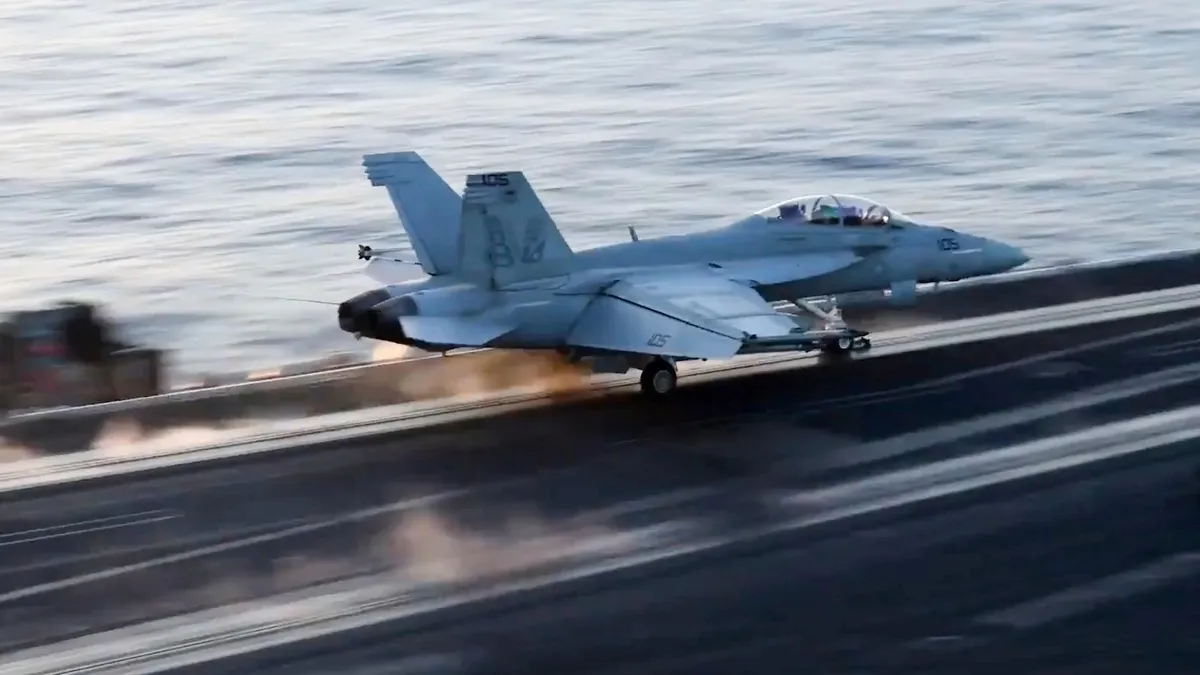
In a recent escalation of tensions in the Red Sea, the Houthis launched a retaliatory missile and drone attack against U.S. Navy ships. However, a U.S. official confirmed to ABC News that none of these attacks came close to hitting American vessels. This incident follows a series of airstrikes initiated by the Trump administration targeting the Iranian-backed group, underscoring the ongoing conflict in the region.
On Sunday, the Houthis claimed responsibility for firing 18 ballistic missiles and a drone at the USS Harry S. Truman aircraft carrier group. These attacks were reported to have taken place over a 24-hour period, with the group asserting that their actions were a defensive measure to thwart a hostile attack they believed was being planned against them. However, the U.S. official clarified that, in reality, the Houthis launched 11 drones and one ballistic missile, none of which posed a threat to U.S. vessels.
According to the U.S. military, all the drones were intercepted: ten were shot down by Air Force planes, and one was downed by Navy aircraft. The ballistic missile, meanwhile, fell short of its intended target and was not intercepted due to its trajectory.
The Houthi retaliation came as a response to a wave of U.S. airstrikes that began on Saturday, which President Trump characterized as a decisive military action against the Houthi forces. The Houthis have been actively targeting Western-linked shipping and launching munitions into Israel since late 2022, in protest against Israel's ongoing conflict with Hamas in the Gaza Strip.
Trump expressed his resolve on social media, stating that the U.S. would employ “overwhelming lethal force” until their objectives were met. A U.S. official confirmed to ABC News that U.S. air and naval assets successfully struck numerous Houthi targets in Yemen, including missile facilities, radar systems, and air defense installations. This operation was described as an opening salvo that sends a strong message to Iran regarding their support for the Houthis.
The Yemeni Health Ministry reported that the U.S. airstrikes resulted in 53 fatalities and left 98 individuals injured, highlighting the severe human cost associated with these military actions. During a press briefing aboard Air Force One, President Trump expressed that he was not overly concerned about potential retaliatory strikes following the recent U.S. military actions.
National Security Adviser Mike Waltz emphasized the significance of the strikes, noting that they specifically targeted multiple Houthi leaders. He articulated a dual strategy: not only going after Houthi leadership but also holding Iran accountable for its role in supporting the group.
In their latest statement, the Houthis vowed to continue banning the passage of Israeli ships through their operational zone until the blockade on the Gaza Strip is lifted. This declaration indicates their commitment to maintaining pressure on Israel and reflects the ongoing volatility in the region.
The situation remains fluid, and the international community is closely monitoring developments as tensions escalate in this critical maritime region. With the Houthis continuing their campaign against U.S. interests and regional allies, the potential for further conflict remains high.